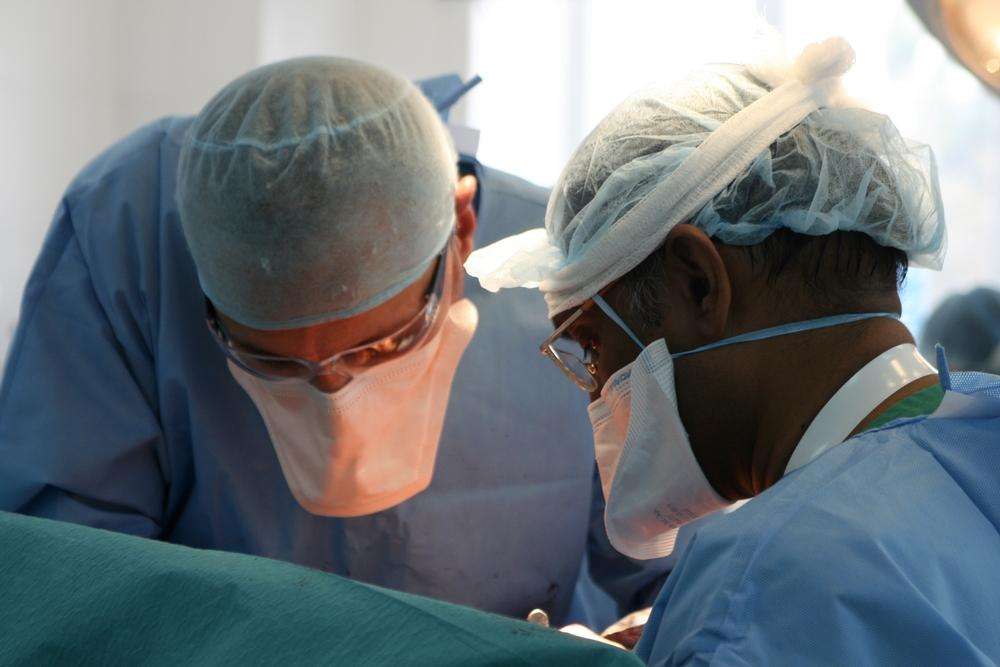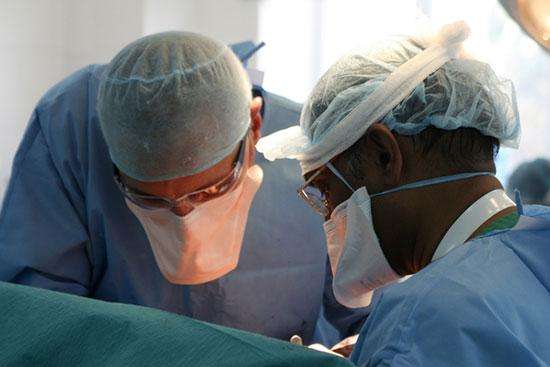A mobile Doctors Without Borders/Médecins Sans Frontières (MSF) tuberculosis (TB) surgery mission has successfully completed surgery on six drug-resistant (DR) TB patients in Yeravan, Armenia—the first mobile TB surgery ever carried out by the organization.
Surgery to remove part or all of a lung affected by TB used to be a key intervention for the disease in the pre-chemotherapy era. In the 1960s, the development of new anti-TB drugs improved medical treatment outcomes and consequently reduced the use of surgery.
However, the emergence of multi-drug resistant (MDR) and extensively drug-resistant (XDR) TB in recent years has left some patients with minimal chances of recovery through medication alone. TB surgery has therefore risen again as an additional tool in the fight against the deadly disease.
Constraints and Challenges
In addition to treating patients who acutely needed operations, the objective of the MSF surgery mission was to improve the overall surgical capacity of Armenia’s national TB hospital, including introducing the latest surgical procedures and techniques to local staff and improving post-operative and nursing care.
The key constraints preventing Armenian health authorities—and those in many other countries around the world—from effectively conducting this kind of surgery include a lack of modern operating theater equipment and infection control measures and surgical staff experienced in the latest protocols and procedures.
MSF successfully advocated with other actors like the German Development Bank (KfW) and GOPA (a German development consultancy that was involved in capacity building of TB services in South Caucasus countries) to support the local Ministry of Health (MoH) in upgrading the TB surgery department, and provided the medical expertise, some equipment, and staff to conduct the surgery.
“TB surgeries are complex procedures requiring highly specialized teams with years of practice in the latest procedures and techniques,” said MSF Head of Mission in Armenia Annabelle Djeribi. “By performing the surgeries together with a multi-national and multi-disciplinary team comprising specialized thoracic surgeons, anesthesiologists, operating theater nurses, and a chest physiotherapist, local staff benefit from the experience of countries that developed strong competencies in thoracic surgery. This was an invaluable opportunity for them to build on their current skills and protocols by working closely with a team equipped with the most up-to-date techniques and expertise.”
Preparation was key to the success of the surgery mission. Well ahead of the arrival of the mobile surgery team, a multi-disciplinary committee comprising MSF and MoH staff meticulously planned the entire process, including the careful selection of patients for operations and what would be needed in the weeks following the surgery.
Reclaiming Lives
While surgery alone cannot cure patients of TB or reduce the need for years of toxic treatment with the drugs currently available, in specific cases it can significantly improve the chances of treatment working—particularly for patients who have run out of all other options.
One of the patients to benefit from the team’s visit was diagnosed with MDR-TB in 2010. After three years of hospitalization with daily treatment his condition did not improve and he remained contagious.
In addition to having no chance of being cured of the disease, being contagious kept him away from his family and relatives.
“It was so difficult for him not being able to see any light at the end of the tunnel—he complained that he could not even hug his grandchildren,” said Djeribi. “The surgery mission has been an amazing relief for him and he can now contemplate the possibility of finally being able to return home.”
Following the success of the initiative, the MSF mobile surgery team aims to conduct other visits to Armenia to continue to improve the skills and capacity of the local staff while providing patients with a chance to reclaim their lives from this devastating disease.





